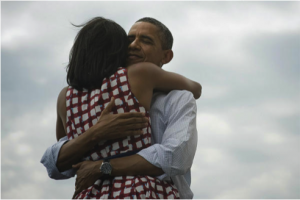| Apr 5, 2016
Social Media—A 2016 Presidential Election Game-Changer
Not since radio in the 1920s and television in the 1960s has a medium played such a significant role in a presidential election.
In February, copywriter Erin McCarthy discussed how social media, particularly Snapchat, was changing how voters follow election results, but social media has also transformed campaigns themselves in ways that were unimaginable just a few elections ago.
In 2004’s Bush vs. Gore contest, Facebook had just launched nine months prior and Twitter did not come online until 2006. Four years later, social media would go from an election non-factor to a powerful voter engagement and outreach tool.
In 2008, a relatively unknown Barack Obama mobilized millions of voters, primarily through Facebook, and went on to defeat two political veterans, front-runner Hillary Clinton in the democratic primaries and Senator John McCain in November’s general election.
In 2012, President Obama continued his social media dominance by taking his ideas straight to voters, posting nearly four times the content of Mitt Romney and other opponents, and on almost twice as many channels. That campaign was a study in digital grassroots campaigning.
 Perhaps it’s not surprising then that team Obama would share this now iconic 2012 victory image on Twitter, a photo that was retweeted over 800,000 times, breaking all prior Twitter records in the process.
Perhaps it’s not surprising then that team Obama would share this now iconic 2012 victory image on Twitter, a photo that was retweeted over 800,000 times, breaking all prior Twitter records in the process.
While Barack Obama will certainly go down in history as the author of the modern day digital campaign playbook, today’s presidential candidates are completely rewriting it to leverage the growing number of social networks.
In 2016, the question is not which candidates are using social media, but what channels are they using and who is using them most effectively to engage supporters and donors.
- Hillary Clinton released a 2016 campaign playlist on Spotify
- Ted Cruz live-streams campaign events on Periscope
- Bernie Sanders excels at creating shareable content and generating social buzz
- Hillary Clinton and Jeb Bush both announced their presidential bids on Snapchat and notably engaged in an entertaining photo shop battle on Twitter over education policies
- Jeb Bush used Instagram to broadcast two videos announcing his Right To Rise super pac
- Lindsey Graham announced the suspension of his campaign via a YouTube video
- Donald Trump, who has more social followers than any other candidate, has mastered the use of Twitter, from unscripted late night tweets to live tweeting democratic debates
It is estimated that the 2016 presidential candidates, both past and present, will spend $1 billion on digital with over half going to social media. So who is winning the battle for online followers? According to Blue Compass, Democrats have an edge on Pinterest, Instagram and YouTube, while Republicans enjoy a sizable lead on Facebook and Twitter.
Regardless of who ultimately proves victorious in their quest to become the 45th President of the United States, one thing is clear—social media will continue to be king of the campaign trail for years to come.
